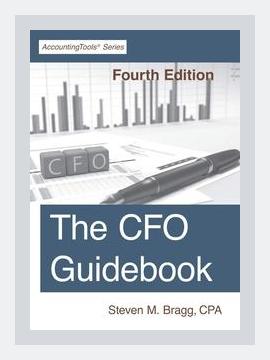Finance, Economics, Trading, InvestingFinancial Technology (FinTech)
Summary of “Fintech and Financial Services: The CFO Guide” by Chris Skinner
Introduction: Navigating the Fintech Revolution
“Fintech and Financial Services: The CFO Guide” by Chris Skinner is a comprehensive exploration of the rapidly evolving financial technology (fintech) landscape and its implications for Chief Financial Officers (CFOs). As financial services undergo a digital transformation, Skinner offers a roadmap for CFOs to understand, adapt to, and leverage fintech innovations. The book delves into the intersection of technology and finance, providing actionable insights for financial leaders aiming to stay ahead in a competitive market. With fintech reshaping everything from payments to lending, this guide is essential for those looking to lead their organizations through the challenges and opportunities of the digital age.
Section 1: The Digital Transformation of Financial Services
Skinner begins by outlining the seismic shifts in the financial services industry driven by technological advancements. He emphasizes that traditional financial institutions are under pressure to evolve or risk obsolescence. One of the key themes is the shift from legacy systems to agile, customer-centric digital platforms.
-
Example 1: Skinner discusses how banks like JPMorgan Chase have invested heavily in technology to enhance customer experiences and streamline operations. By adopting AI-driven chatbots and blockchain for secure transactions, these banks are setting new standards in digital banking.
-
Memorable Quote 1: “In the digital age, the speed of innovation outpaces the speed of regulation.” This quote highlights the tension between rapid technological advancements and the regulatory frameworks that struggle to keep up.
The section also explores the rise of challenger banks and fintech startups that are disrupting the traditional banking model. Skinner notes that these new players are not burdened by legacy systems, allowing them to innovate and scale quickly.
Section 2: The Role of the CFO in the Fintech Era
This section focuses on the evolving role of the CFO in a fintech-driven world. Skinner argues that CFOs must move beyond traditional financial management and embrace a more strategic role that includes technology leadership.
-
Example 2: Skinner highlights the example of Square, where the CFO plays a crucial role in aligning financial strategies with technological innovations. By understanding the potential of fintech solutions, the CFO can drive growth and profitability.
-
Memorable Quote 2: “The CFO of tomorrow is not just a numbers person but a tech-savvy strategist.” This quote underscores the need for CFOs to develop a deep understanding of technology and its impact on finance.
Skinner also discusses the importance of data analytics in financial decision-making. He suggests that CFOs should leverage big data to gain insights into customer behavior, market trends, and operational efficiency.
Section 3: Key Fintech Innovations Shaping the Future
In this section, Skinner dives into specific fintech innovations that are transforming financial services. He covers a range of technologies, including blockchain, artificial intelligence (AI), and robo-advisors, explaining how each one is disrupting traditional financial models.
-
Example 3: The book discusses the impact of blockchain technology on cross-border payments. Skinner explains how companies like Ripple are using blockchain to enable faster, cheaper, and more secure international transactions.
-
Memorable Quote 3: “Blockchain is not just a buzzword; it’s a fundamental shift in how we think about trust and security in financial transactions.” This quote emphasizes the transformative potential of blockchain in financial services.
Skinner also touches on the rise of fintech ecosystems, where various fintech solutions are integrated to create a seamless customer experience. He points to the example of Ant Financial, which has built a comprehensive ecosystem that includes payments, lending, and wealth management services.
Section 4: Navigating Regulatory Challenges
As fintech continues to evolve, regulatory challenges are becoming increasingly complex. In this section, Skinner explores the regulatory landscape and offers strategies for CFOs to navigate these challenges effectively.
Skinner discusses the need for a balanced approach to regulation—one that protects consumers and maintains market integrity without stifling innovation. He argues that CFOs must work closely with regulators to ensure compliance while advocating for regulations that encourage growth.
- Example 4: The book cites the example of the European Union’s General Data Protection Regulation (GDPR), which has significant implications for financial institutions. Skinner explains how CFOs can ensure compliance with data protection laws while leveraging data for business growth.
Section 5: The Future of Fintech and Financial Services
In the final section, Skinner looks ahead to the future of fintech and financial services. He predicts that the pace of change will only accelerate, driven by advances in AI, machine learning, and quantum computing. Skinner advises CFOs to stay informed about emerging technologies and be prepared to adapt their strategies accordingly.
Skinner also discusses the growing importance of sustainability in finance. He argues that fintech can play a key role in driving sustainable finance initiatives, such as green bonds and impact investing.
- Example 5: The book highlights how fintech platforms are enabling greater access to sustainable investment opportunities, allowing investors to align their portfolios with their values.
Conclusion: The Strategic Imperative for CFOs
“Fintech and Financial Services: The CFO Guide” by Chris Skinner is more than just a guide—it’s a strategic imperative for CFOs who want to thrive in the digital age. As the financial services industry continues to evolve, Skinner’s insights provide a valuable framework for navigating the challenges and opportunities ahead.
The book has received critical acclaim for its thorough analysis and practical advice. Its relevance extends beyond CFOs to anyone interested in the future of finance. With fintech poised to redefine the industry, Skinner’s guide is an essential resource for leaders who want to stay ahead of the curve.
By synthesizing key concepts, real-world examples, and actionable strategies, “Fintech and Financial Services: The CFO Guide” equips financial leaders with the knowledge they need to succeed in a rapidly changing landscape. Whether you’re a CFO, a financial professional, or simply interested in the future of finance, this book offers invaluable insights into the fintech revolution.
Finance, Economics, Trading, InvestingFinancial Technology (FinTech)
